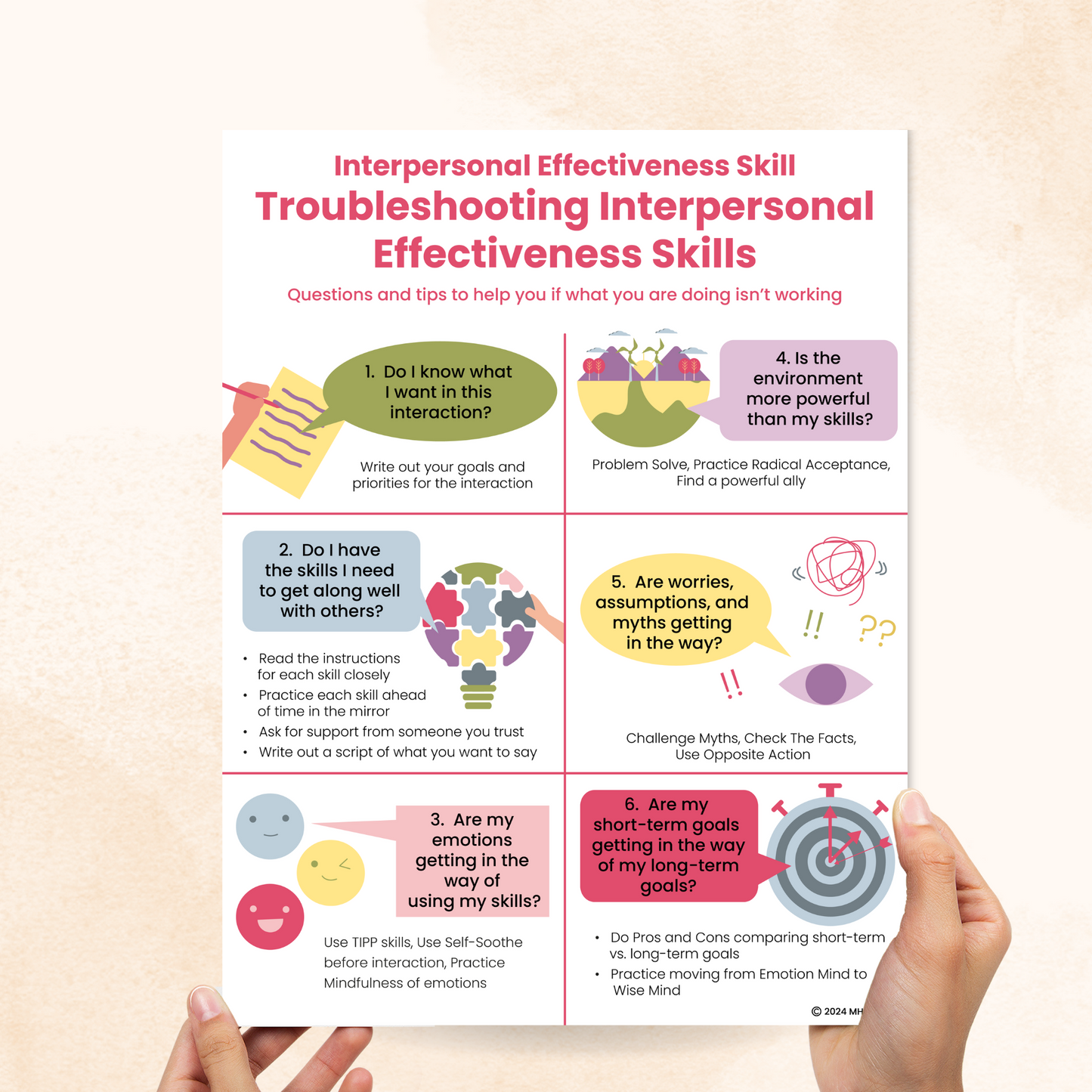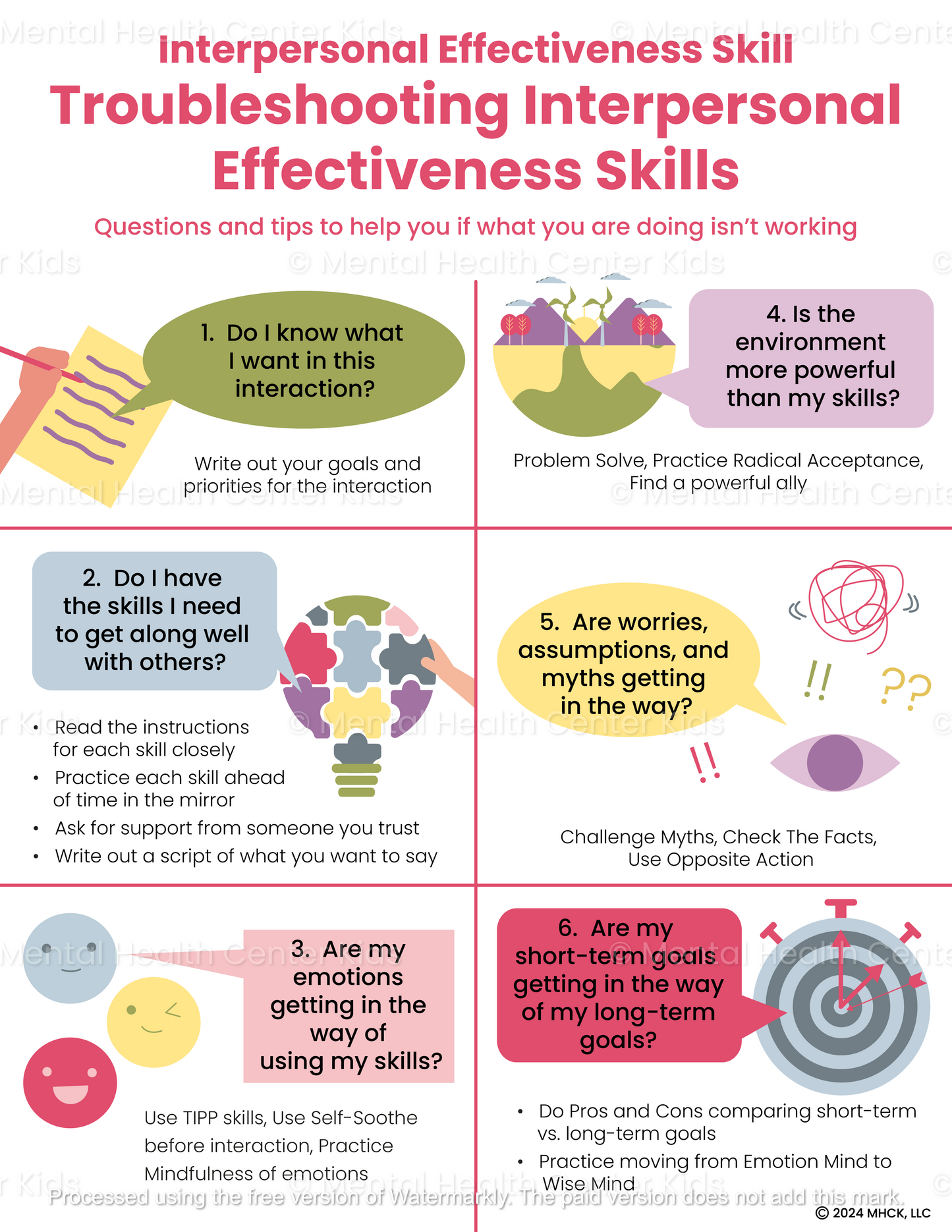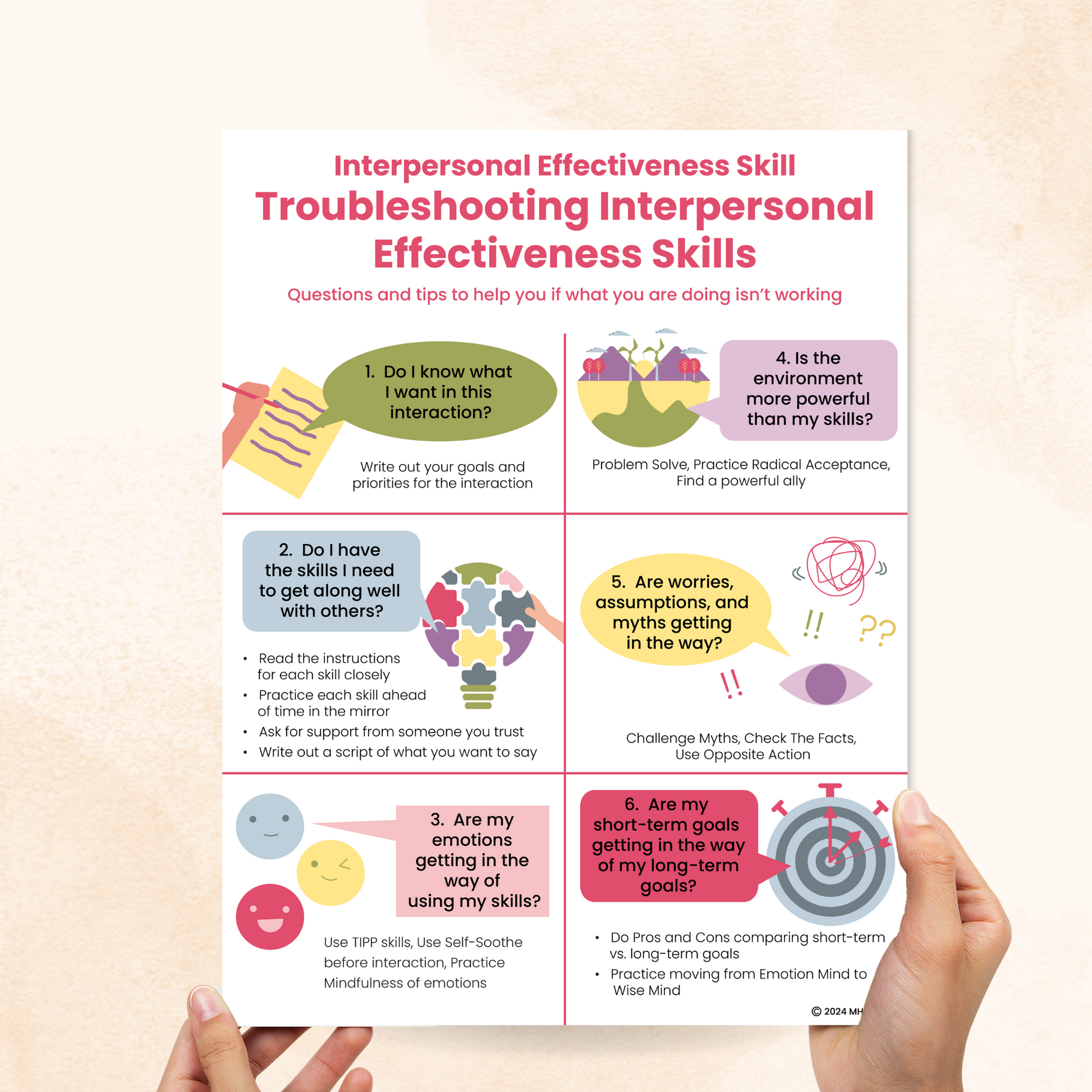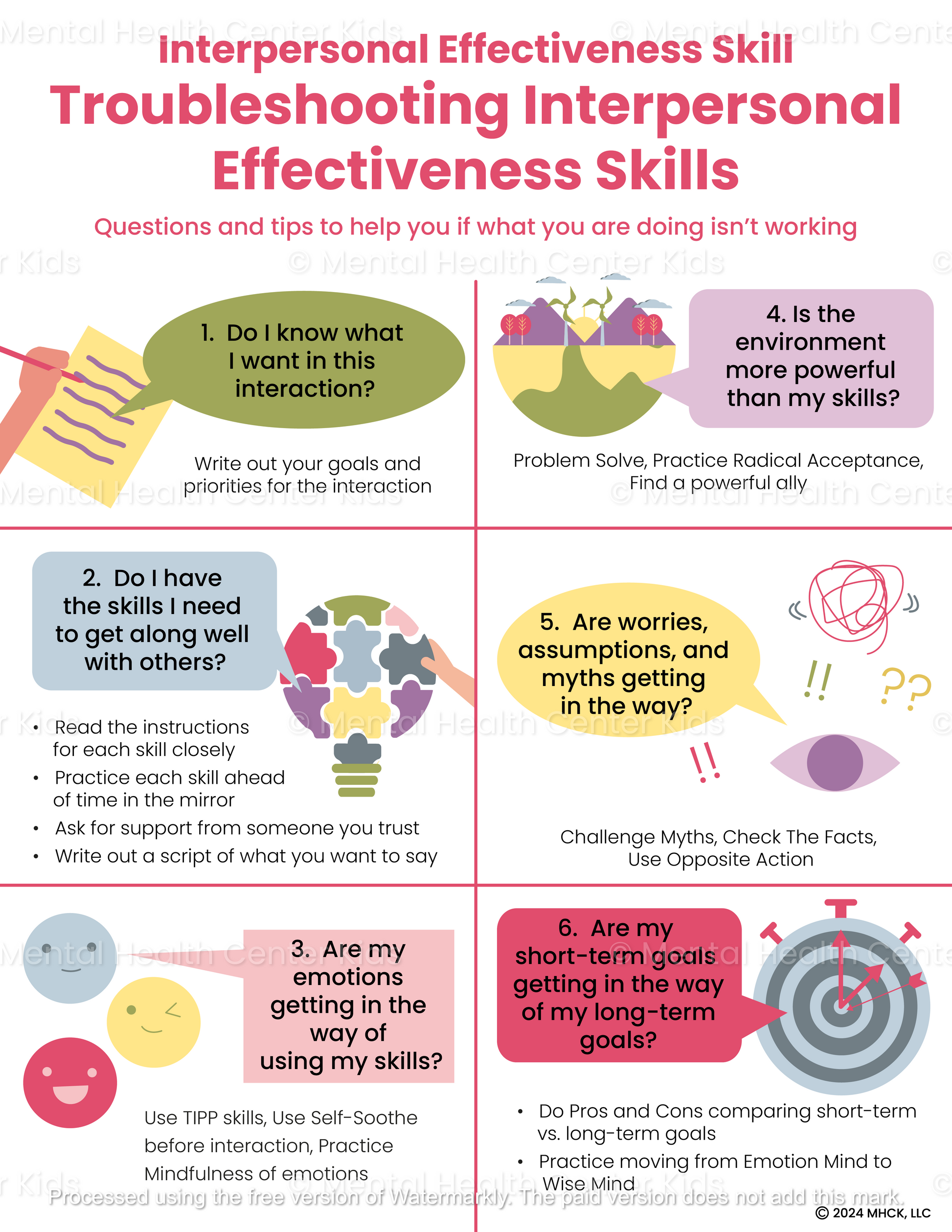Troubleshooting Interpersonal Effectiveness Skills


In Dialectical Behavior Therapy (DBT), individuals may encounter situations where applying interpersonal effectiveness skills can be challenging. This is because certain factors affect the outcome of an interaction, such as your goals, the environment you’re in, and the emotions you’re currently experiencing.
The Troubleshooting Interpersonal Effectiveness Skills handout asks six questions and offers tips to help clients adapt their approach based on the potential barrier they’re facing — for example, their environment, worries, assumptions, and short-term goals that hinder their progress toward long-term goals.
Using this handout teaches kids and teens alternative coping strategies in case their current skill doesn’t work. If your child isn’t familiar with a DBT skill on the handout (e.g. TIPP, self-soothing, Wise Mind) be sure to explain the skill using simple language and use a relatable example.
This handout pairs well with our Barriers To Interpersonal Effectiveness DBT Handout, which describes 5 common barriers to interpersonal effectiveness and tips to work through each one. You can also include our DBT Interpersonal Effectiveness Skills handout for a brief summary of several interpersonal effectiveness skills.
*This item is an instant digital download. A link to download your files will be emailed to you once payment is confirmed.
Want more resources like this? Check out our full catalog of DBT worksheets and handouts.
References:
- Barnicot, K., Couldrey, L., Sandhu, S., & Priebe, S. (2015). Overcoming Barriers to skills training in Borderline Personality Disorder: A Qualitative interview study. PLOS ONE, 10(10), e0140635. https://doi.org/10.1371/journal.pone.0140635
- Instant digital download
- File: PDF
- Size: 8.5" x 11"



